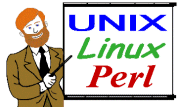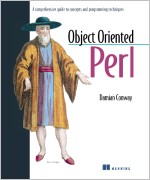

|
|
|
| Site Menu |
|
Home
Debug Training Services Courses Clients Company Information Publications |
 Adv. Module Implementation Techniques
�(�1-day�Seminar�)
Adv. Module Implementation Techniques
�(�1-day�Seminar�)
by� Visiting Instructor � Dr. Damian Conway ����


Next Public Offering:� July 17, 2002 �� Kirkland, WA
| Description |
Attendees will learn:
- How Perl's attribute mechanism works and how a module can make it useable (Attribute::Handler, Attribute::Types).
- How to reconfigure Perl's method dispatch mechanism in two different ways (NEXT, Class::Delegation).
- How to write modules based on source code filters (Filter::Simple, Switch, Perl6::Variables).
- How a single hash can be the entire, lazily evaluated interface to a module (Regexp::Common).
- How to replace built-in functions and syntax (Inline::Files)
- How to extend Perl's subroutine call mechanism using lexical subroutine destructors (Hook::LexWrap)
| Who Should Attend |
- perlsub - Subroutines
- perlmod - Modules
- perlmodlib - Constructing New Perl Modules and Finding Existing Ones
- perltie - How to Hide an Object Class in a Simple Variable
- Chapters 6, 7, 9 of Object Oriented Perl
- Chapters 10, 11, 14 of Programming Perl, 3rd Ed. (Camel 3)
| Author & Instructor |
He is the author of numerous well-known Perl modules including: Class::Contract, Text::Autoformat, Parse::RecDescent, Text::Balanced, Lingua::EN::Inflect, Class::Multimethods, Switch, Quantum::Superpositions, NEXT, Filter::Simple, Attribute::Handlers, Inline::Files, and Coy (all available from your local CPAN mirror).

�
Damian was the winner of the 1998, 1999, and 2000 Larry Wall
Award competitions for the most practical Perl utility program.
He is a member of the technical
committee for
The Perl Conference,
a columnist for
The Perl Journal,
author of the book
Object Oriented Perl,
a member of the Perl 6 design team, and a popular public speaker.
In 2001, Damian received the first YAS Perl Development Grant and
spent the year working on projects for the betterment of Perl.
He is continuing this work in 2002 under a similar grant from
The Perl Foundation.
�
instructors, including Visiting Instructor Dr. Damian Conway, are renowned for their ability to communicate complex concepts in simple terms and to make the study of dry technical material enjoyable. We pride ourselves in providing training experiences that our customers rave about! �
| Seminar Outline |
-
Review of Perl's module mechanism
- Packages
- Modules
- @INC and %INC
- Exporter and Exporter::Simple
-
Attributes
- What they are
- How they're created
- Why no-one uses them
- How the Attribute::Handlers module solves that
- Attributes instead of ties (the Attribute::Types module)
- How the Attribute::Handlers module works
- The future of attributes: Attribute::Handlers::Prospective
-
Method redispatch
- What is OO dispatch
- How Perl does it
- What is OO redispatch
- How Perl does it
- How Perl should do it
- How the NEXT module lets Perl do it
- How the NEXT module works
-
Delegation
- Using aggregation instead of inheritance
- How the Class::Delegation modules lets you do that
- How the Class::delegation module works
- Examples:
- Inheriting uninheritable classes
- Multiply inheriting un-multiply-inheritable classes
- Changing Perl's method inheritance semantics
- Integrating legacy classes in a new hierarchy
- Multiplexing aggregated classes
-
Subroutine customization
- "Wrapping" subroutines
- The Hook:: classes on CPAN
- Benefits of Hook::LexWrap
- How Hook::Lexwrap is used
- How Hook::Lexwrap is implemented
- Applications:
- Unit transformation
- Memoization
-
Source filters
- How Perl's source filtering mechanism works
- Using the Filter::Util::Call module
- Why you might prefer the Filter::Simple module instead
- How Filter::Simple is used
- How Filter::Simple is implemented
- Examples
- The Switch module
- The Perl6::Variables module
- The Inline::Files module
-
Regular expressions
- Why they aren't used as widely as they might be
- How the Regexp::Common module tries to overcome that
- How the Regexp::Common module is implemented
- Interface minimalism
- How "user configurability" supports "distributed development"
| Other Courses |
We have courses on many other Perl and UNIX/Linux topics!

|
|
|
|
|
|
|
|
� Copyright 1995-2004 Pacific Software Gurus, Inc..
All Rights Reserved.

